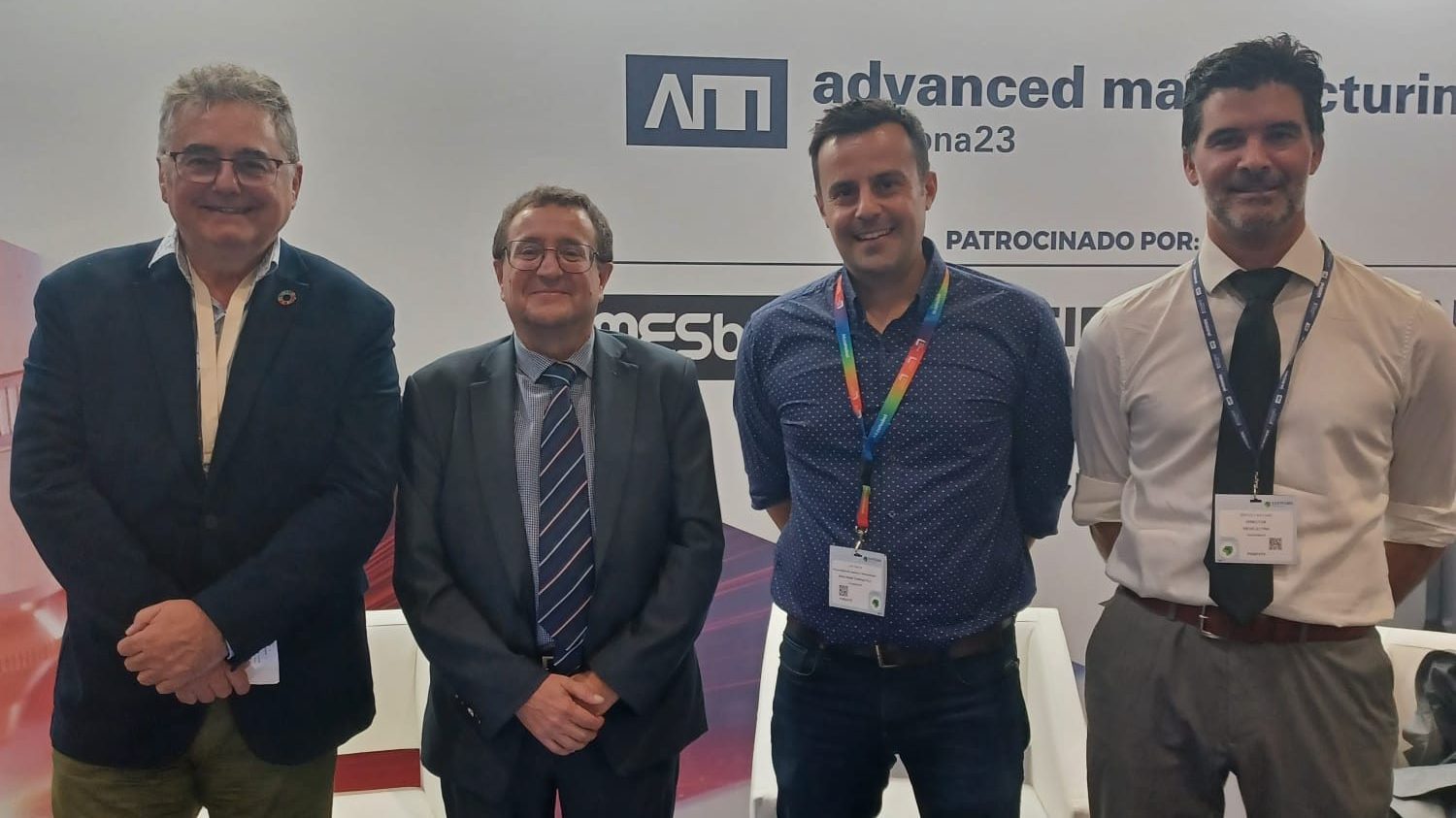- ‘We need renewable energies to be integrated into the industry, and in this process, energy communities are the solution for a major share of the processes’ (Baltasar Pozuelo).
- ‘To make the right procurement decisions, it’s crucial to understand that fixed and indexed prices aren’t inherently good or bad. Choosing the right one will depend on the market situation: the trend, whether prices are rising or falling, and the current cost of energy’ (Sergio Maynar).
- ‘Awareness is key to the energy transition of companies; things work out better when done with emotion. There are no magic technologies; the solutions are in the market’ (Luis García).
Barcelona, September 26, 2023 – Raising awareness, seeking new approaches, and diversifying are the three key elements to optimize energy management in the industry and align it with the green transition process. This was emphasized in the roundtable discussion on “Models of Energy Efficiency in the Industry” organized by the Foro Industria y Energía at Advanced Manufacturing Barcelona. The event brought together three different perspectives on this matter, featuring representatives from energy communities, energy providers, and industrial companies.
Searching for New Approaches
Baltasar Pozuelo, the General Director of Área 8, shared his vision of the future of energy management in the industry from the perspective of ‘shared and distributed energy communities.’ According to him, one of the keys lies in seeking new approaches and ‘setting aside some of our preconceived notions to focus on future possibilities.’ In this context, Pozuelo stressed the importance of talent search and retention.
Pozuelo identified two other crucial aspects for successfully navigating the energy transition in the industry: the promotion of renewable energy sources and energy efficiency. He expressed the need for renewable energies to be integrated within the industry, emphasizing that ‘energy communities are a solution for a significant portion of the processes.’ They offer economic savings, easier financing options, and risk diversification. ‘Energy communities create a sustainable ecosystem where energy is green, local, and more affordable. This supports local business development and enhances long-term growth potential,’ he pointed out.
Diversification
The event’s speakers unanimously stressed the importance of knowledge and specialization in optimizing energy management in the industry. ‘Seeking advice from those who have the expertise to make informed decisions,’ as noted by Albert Concepción, Director of the Industry and Energy Forum and event moderator.
In this regard, Sergio Maynar, Director of Neoelectra Energía, highlighted the role of experience in the procurement of electrical supplies, especially in areas such as choosing tariffs based on fixed prices, indexed prices, or a combination of both. Factors to consider include the level of risk the company can assume in energy pricing, depending on its ability to pass energy costs on to its final product.
Maynar explained, ‘To make the right procurement decisions, it’s crucial to understand that fixed and indexed prices aren’t inherently good or bad. Choosing the right one will depend on the market situation, including factors like market trends, whether prices are rising or falling, and the current cost of energy.’
As a general principle, though the solution varies depending on the size and characteristics of the company, Maynar believes in ‘diversification in energy procurement and optimization.’ This philosophy aligns with Neoelectra Energía’s approach, which aims to ‘advise clients to find the best option based on the market’s current conditions, manage energy effectively, and create synergies with other companies.’
Awareness
Luis García, Site Responsible Engineer at AkzoNobel, provided the industry’s perspective. From his experience, one of the keys to the energy transition in the industry is employee awareness and the integration of sustainability into the company’s strategy, along with setting ambitious objectives. ‘Our target audience is our employees,’ he emphasized, ‘they all contribute to achieving energy savings.’ In this context, awareness is critical: ‘when things are done emotionally, they turn out better. There are no magic technologies; the solutions are available in the market,’ he added.
The expert highlighted the necessity of integrating sustainability into the company’s philosophy because ‘companies that don’t align 100% with the Sustainable Development Goals (SDGs) will eventually be phased out of the market in the long run.’ To achieve sustainability goals, he emphasized the importance of having effective measurement systems in place, as ‘what is not measured cannot be improved, and eventually, it will deteriorate,’ he explained.
Regarding the challenging sustainability goals the expert referred to, AkzoNobel’s objective for 2030 is to reduce CO2 emissions by 50% compared to 2018, by promoting renewable energies and reducing consumption through efficiency measures.

